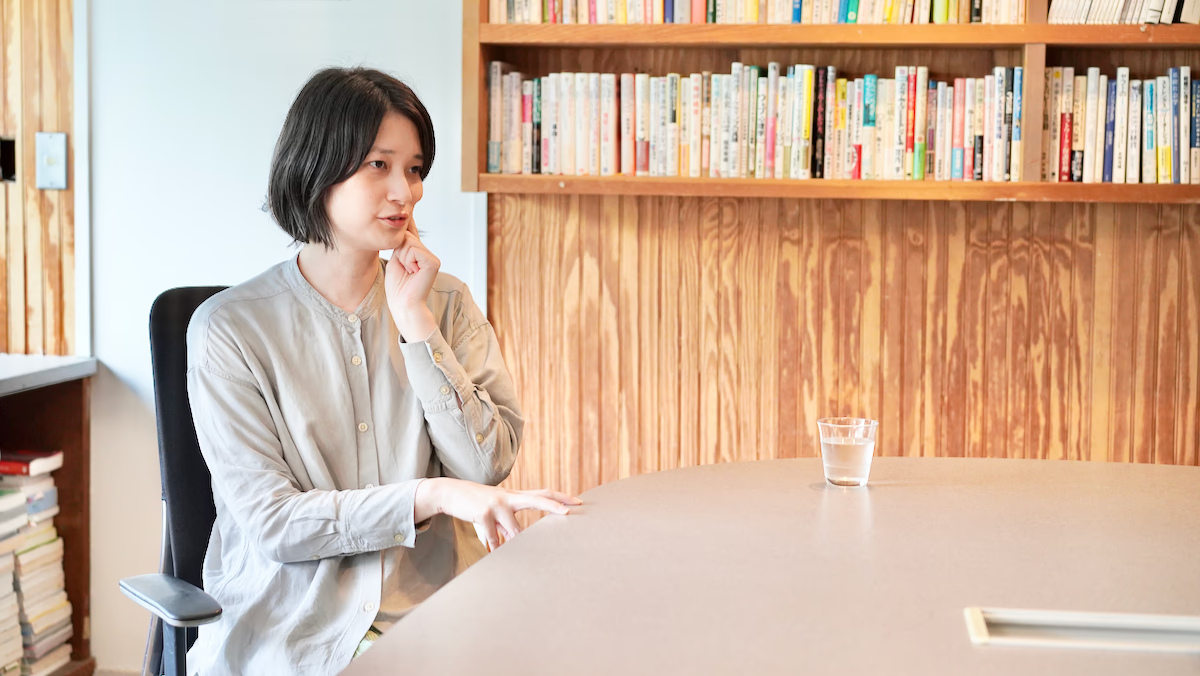こんにちは、京都で暮らしているライターの杉本です。
ザ・盆地の夏!湿気と熱でぬるいゼリーみたいな空気をかきわけて生きています...。
さて今回は、ものさすサイトへの登場はちょっとおひさしぶり、モノサス・タイランド(モノタイ)のディレクター、町山百合香さんにインタビュー。同じくモノタイの田中優香さんが集めてくれた、いつも一緒に働いているモノサスメンバーの質問を織り交ぜつつお話を伺いました。
激務とリフレッシュのバランスは?
杉本:もうモノタイに入社してもう7年が経ちましたね。どんなお仕事をしていますか?
町山:こんなに長くなるなんて自分でもびっくりです。仕事はWebディレクターです。お客さんとタイ人のコーダーさんの間に入って仕様のすり合わせや案件の進行管理をしています。
杉本:実は、モノサスのみなさんから町山さんへの質問をたくさん預かっています。町山さんといえば、「忙しい」「激務」というイメージがあるようで、関連する質問をいくつかいただきました。
町山:そんな!みんな(笑)。
杉本:香川さんから質問です。「いつも激務に追われているイメージです。ずっとそのような状態が続いても、前向きに仕事に取り組み続けている印象があるのですが、どのようなモチベーションで働いているのでしょうか」。永井さんから「どのような仕事に、もしくはどういうところにモチベーションや喜びを感じますか?」。
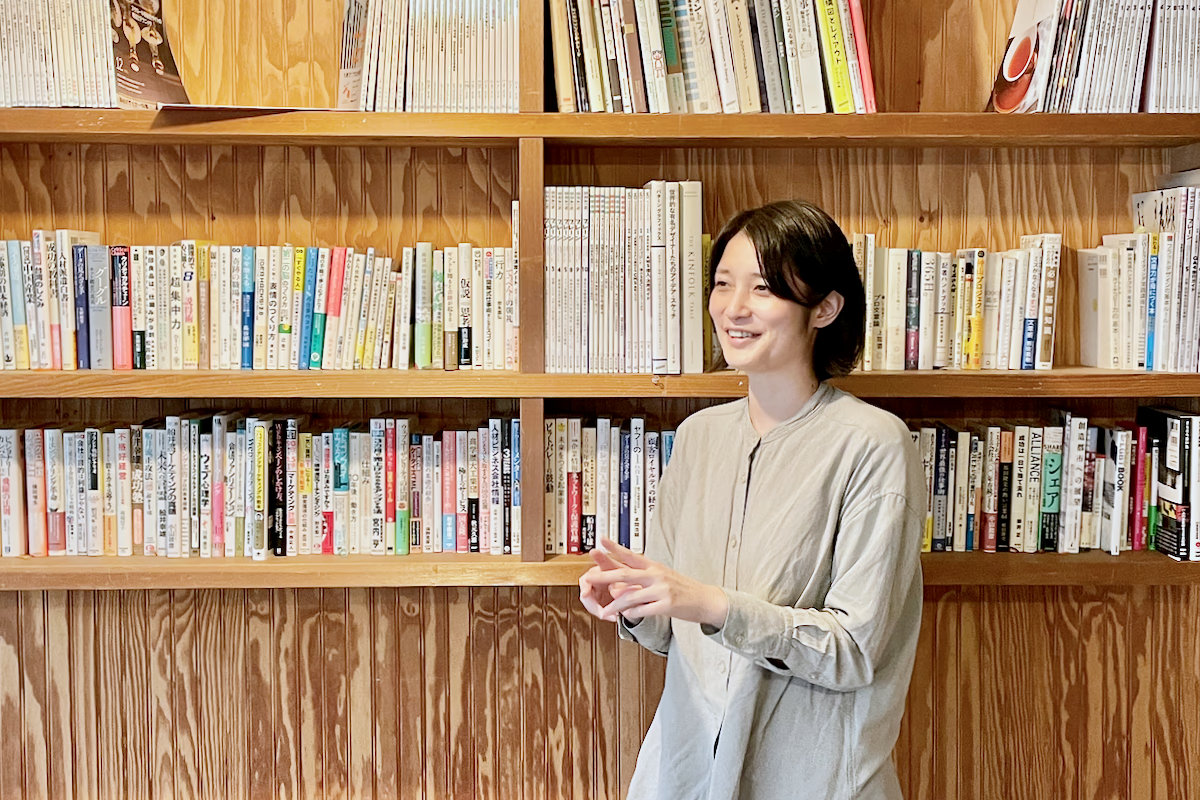
町山:いったん集中状態に入るとずーっとやってしまうんですよ。ただ、脳の疲れ具合が昔と今では全然違っています。入社当時はまだPCだけのWebサイトをつくる案件もあったし、一つひとつの案件は簡単だけど数が多くて忙しかったんです。でも今は、案件のニーズがどんどん複雑化して難易度が上がっているから、ずっと集中しつづけるのは無理になっていて。
だから、みんなが思っているほどずーっと働いているわけではなくて。脳のHP(Health Point)を回復するための空白の時間はあります。どうしても今日中に仕上げないといけないときは、寝る前にちょっとやるときもあるけど、ごはんを食べた後にいったん休んでいたりします。
杉本:「もう、仕事したくない!」ってならないんですか?
町山:全然、なりますよ!なるけど、なんだろうな。理不尽なことがあればいやになるけど、それを理不尽ではないかたちで終わらせる落とし所を見つけられたら、「この仕事できてよかったな」と思います。難しい案件もなんとか読み解いてコーダーさんたちとあーだこーだ言って、なんとか納めたいし、難しいことを達成するのは楽しいことじゃないですか。簡単なことだと脳みそも疲れないしつまんない。業界がどんどん進化していくので、自分がまだ知らないちょっと難しいことが常にある。それが、飽きずにやっていくのにちょうどいいんじゃないですかね。何かに夢中になっていると一年が一瞬で終わるから、モチベーションも続いているのかもしれません。
急に話が飛びますけど、私のストレス発散は漫画かな。ひたすら自分が好きなことをして、それを二日くらいやったら大丈夫になる感じ? あと、タイの「ヤードム」っていうメンソールみたいな匂いのリップクリームみたいな見た目のものがあるんですけど、それを嗅ぐ。けっこう効くんですよ。いらいらしてお腹の筋肉が硬くなったら、テニスボールの上に乗っかって、ゴロゴロしてほぐしたりとか。そうやって、ストレスには小さく対処している感じですね。
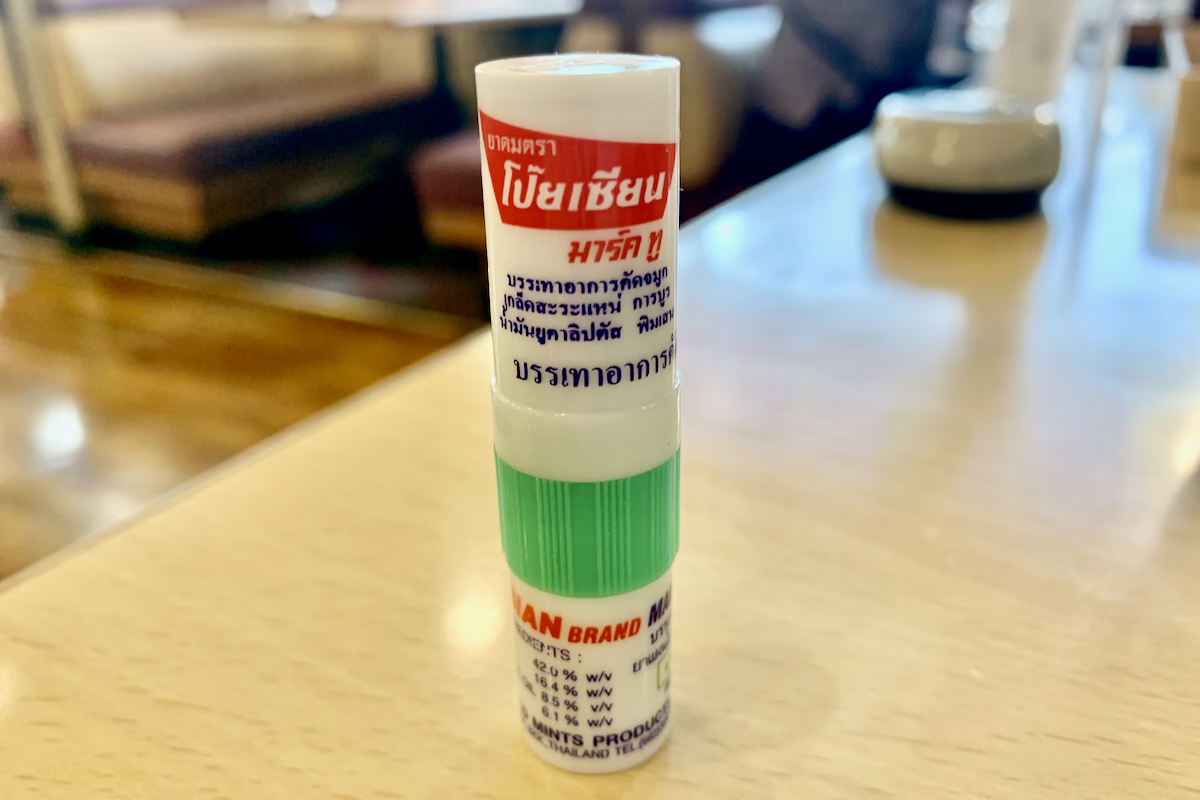
町山さんが愛用しているタイの嗅ぎ薬「ヤードム」(町山さん提供)
「その発想はなかった!」を取り入れたい
杉本:漫画に関連してフォンさんから「二次元キャラクターの中で『自分と似ているな』と思うキャラクターはいますか?どんなところが似ているかも教えてください」と質問をいただいています。
町山:漫画やアニメのキャラクターに自分を重ねているところはあんまりなくて。人の話を聞いたり、漫画を読んだりすると自分では経験できないストーリーを収集できる。たぶん、そこでストレスを発散しているんだと思います。
杉本:日向さんからは「忙しいなか、興味あることへのチャレンジをしているように感じます。そのエネルギーはどこから湧いてくるのでしょうか?」と。
町山:「ストレングス・ファインダー」を受けた時、「収集心」「原点回帰」の資質が強いという結果が出たんです。いろんなことを知りたいし経験したい。好奇心が旺盛だからかもしれない。「興味あることへのチャレンジ」って、日本の子ども向けコーディング学習塾の手伝いをオンラインでしていることかな?
杉本:コーディング学習塾のお手伝いは、なぜはじめたんですか?
町山:ひとつは、教育に興味があるからです。すごく大きく言うと、自分で考えられる人が増えて、政治のおかしさに気づけるようになったら、より良い社会になるのにという思いがあって。もうひとつは、日本円収入になる副業を探していたという理由もあります。
杉本:町山さんがモノタイに入社した背景に「生き方の幅を広げたい」という気持ちがあったそうですね。今もそういう気持ちはありますか?
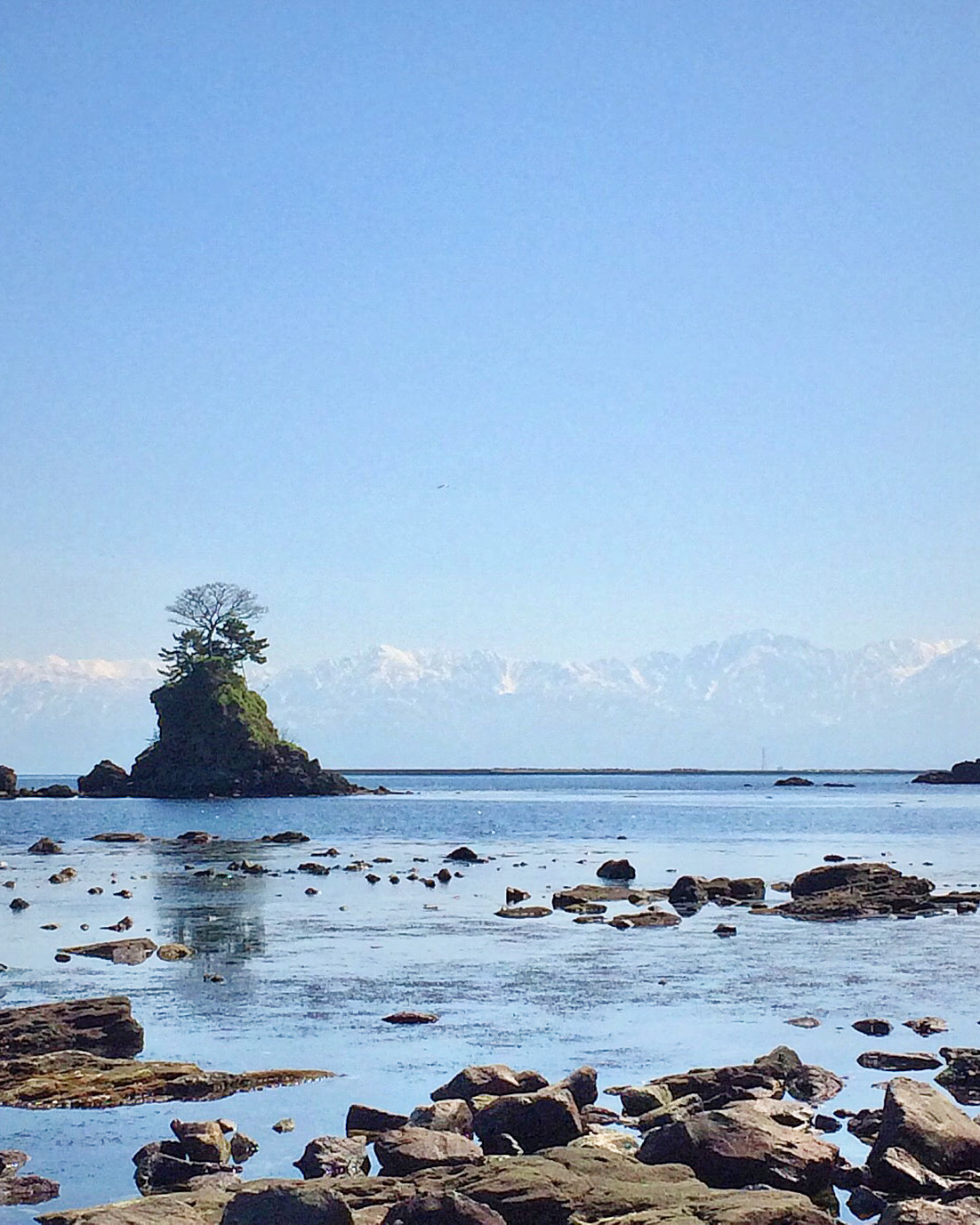
立山連峰が見える富山の海(町山さん提供)
町山:常に大なり小なり「あ、その発想はなかった」みたいなものをどんどん取り入れたいと思っていて。7年前は、自分にとって死角にある要素として、タイで働くという選択をしたんですよね。今は、具体的に言うと富山に移住したいと思っています。景色やごはんのおいしさ、私が惹かれるものが全部あるんです。富山移住について調べていたら、「富山型(*)シェアハウス」という多世代共生型のシェアハウスのWebサイトを見つけて、「あー、これだ!」と思ったりしています。
*「富山型」は認知症や障害の有無にかかわらず、多世代で支え合うデイサービスのモデル。
常に何かを探していて、面白いと思ったらそれに関連する情報を見逃さないようにしていると、自分が好きそうなものが見つかる気がしますね。
なぜ「謎解き」を愛するのか
杉本:松永さんから「遊びにおいても仕事においても。なぜ『謎解き』を愛されるのか」という質問をいただいているのですが。
町山:「リアル脱出ゲーム」のファンで、松永さんと私を含めたメンバー4人で2回行ったことがあるんですよ。「なぜ、謎解きを愛せるのか」っていうと、もうそれが私の性質なんです。サスペンスやミステリー、謎を解くゲームの大好きだし。社会や政治の課題を解決したいというのも同じなんでしょうね。
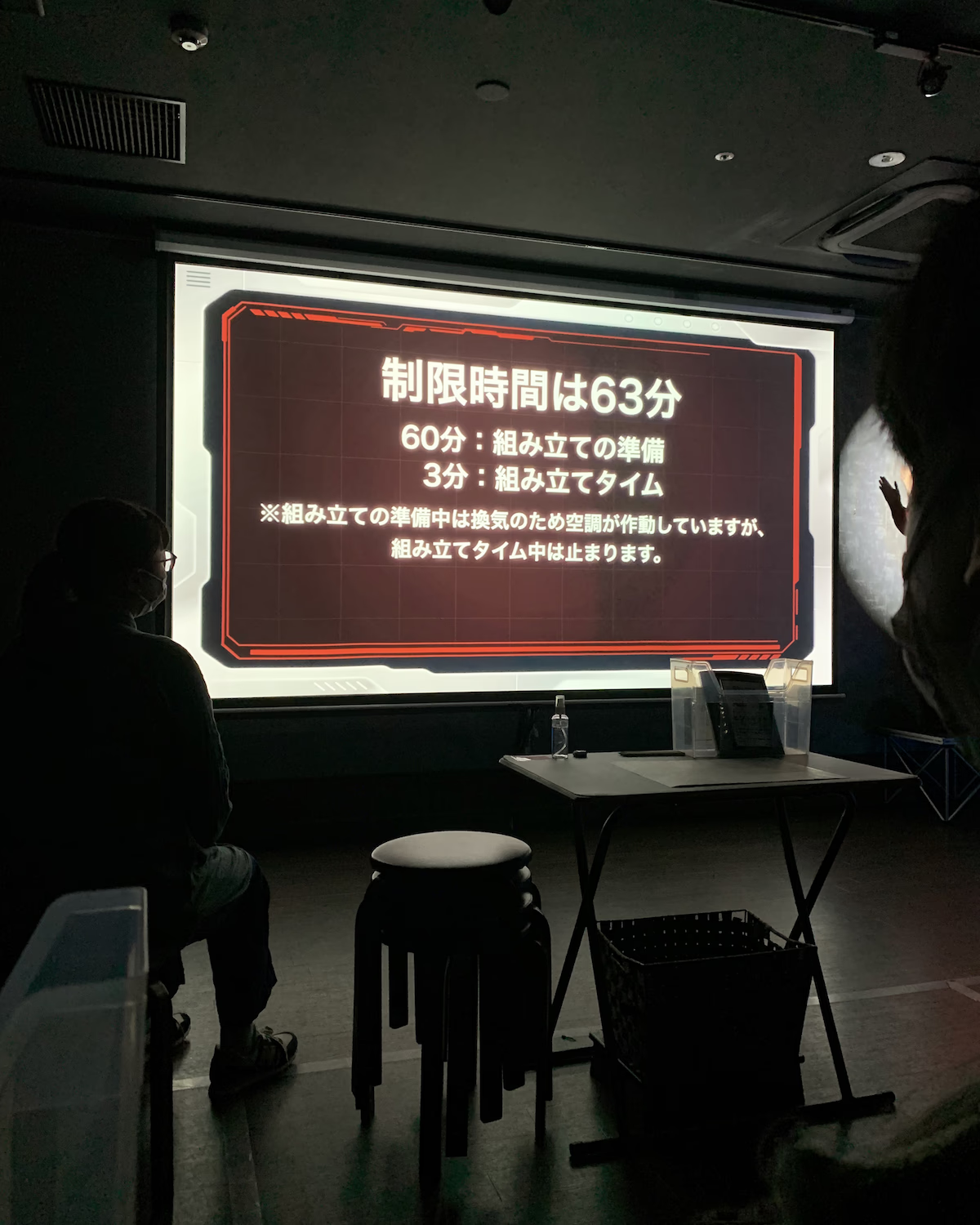
リアル脱出ゲーム(町山さん提供)
杉本:謎を解くことが好き、なんですね。
町山:謎を解く過程も楽しいし、解けた瞬間の「わかったー!」っていう感覚も楽しくないですか?ちょっとわかんないけどがんばったら解けそう!ってときに、脳みそを使う感じが気持ちいいです。
杉本:ただ謎解きが好きな人は、社会や政治の課題を解くことにまで興味をもたない気がして。もう少しパッションがある気がします。
町山:政治に関しては、タイに来て初めての選挙のときに、海外で投票するには日本の住民票を抜いたうえで、2〜3ヶ月かかる手続きを経なければいけないと知って。そうでなければ、住民票のある場所に直接行かなければいけないんです。すごく違和感をもって、選挙制度や政治についてYouTubeなどでいろいろ勉強しはじめたんですよ。すると、国が常に国民のことを第一に考えているとは限らないんだと気づいてすごく衝撃を受けました。
こういう考え方をする背景には、小学校の頃の恩師との出会いがあります。その先生は、問題に気づいて、その問題をどう解決するかを考える楽しさを教えてくれました。その経験のおかげで今の自分があると思っているし、教育に関心をもつことにもつながっています。自分も、誰かにとって1ミリでもそういうきっかけになれたらうれしいです。
杉本:違和感や謎を感じる何かが目の前に来るたびに、「なんだろう?」と調べたり考えたりすることを繰り返しているんですね。
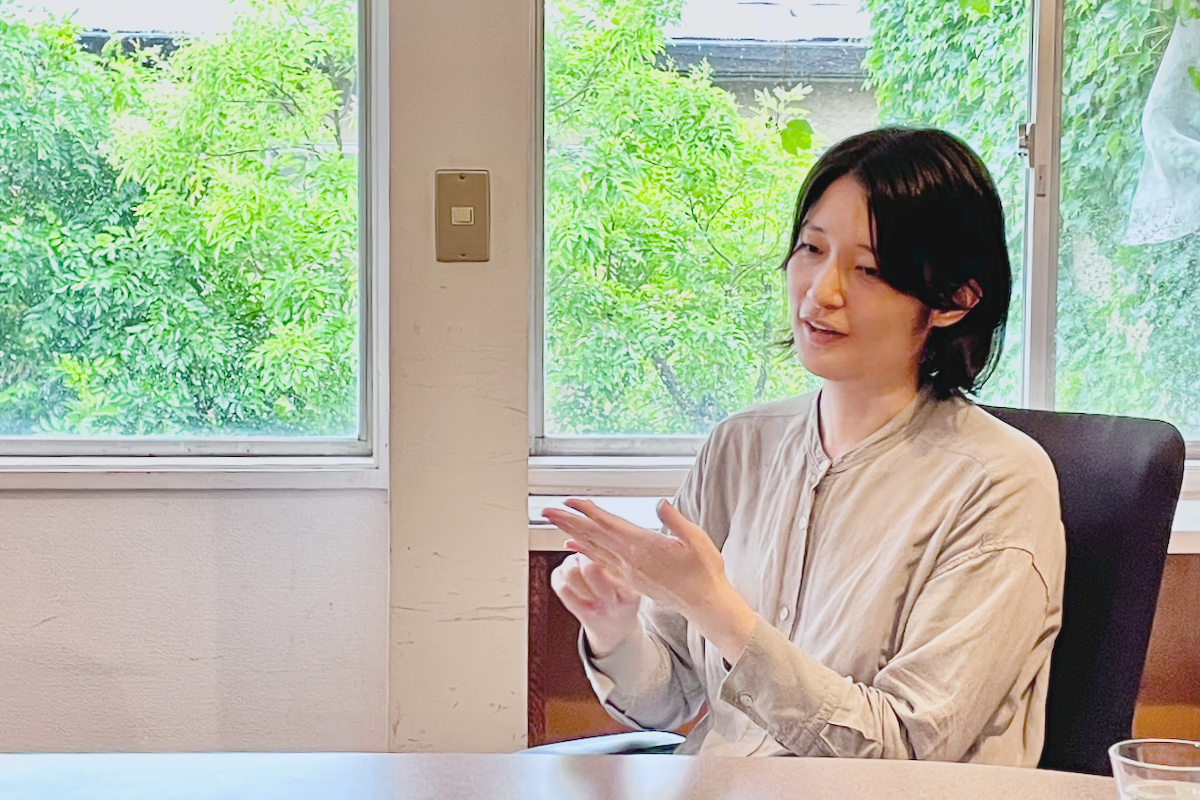
町山:たぶん、そこに自分の存在意義があると思っているのかも。たとえば会議でもいろんなパターンの提案を出したり、意見を言えたりするのも、謎解きを愛する性質があってのことだと思いますし。その結果が、自分への評価やモチベーションにもつながるので、いいサイクルになっていると思います。
モノサスなら「やったらいいじゃん」って言ってくれる
杉本:最後に、8年目を迎えるタイでの生活、そしてモノサスについて聞いてみたいです。日向さんから質問です。「タイを拠点にして長くなってきたけれど、タイのことをどう思う?」。
町山:タイの人たちって、そのへんでしゃべっているのを見ても、初対面なのか知り合いなのかわからないくらい垣根がなくて。あの感じは好きですね。ただ、四季がないから一年が終わる感じがしないし、景色にも変化がないんですよね。日本は四季があるし、国内にいろんな景色がある。日本とタイを足して二で割るとちょうどいいなと思います。
杉本:トンさんから質問です。「また外国で働く機会があれば、どの国で働いてみたいですか?」。
町山:香港かな。ごちゃっとしたカオスな街並みの感じがすごくよくて楽しかったです。けっこう日本語で話しかけてくれる人もいました。
杉本:7年経って、会社やWebの仕事に飽きることはありませんか?
町山:いや、全然あるんですけど(笑)。今はリモートワークに慣れちゃったからなぁ。働く場所に縛られるのが苦手だし、好きなときに好きなところに行ける環境ってなかなかないし。あと、友だちにモノサスの話をすると「面白い会社だね!」ってよく言われるんですよ。なかにいると普通になっちゃっているけど、たしかにそうかもしれないなと思っていて。
具体的に行きたい会社などが見つかれば別ですけど、そうじゃないならモノサスにいたらいいのかなと思っています。何かやりたいことができても、相談すれば「やったらいいじゃん」って言ってくれそうだし、わりとなんでもできるのかもしれないなと思ったりもしています。
杉本:町山さんは、仕事をするうえでは何を一番大事にしていますか?
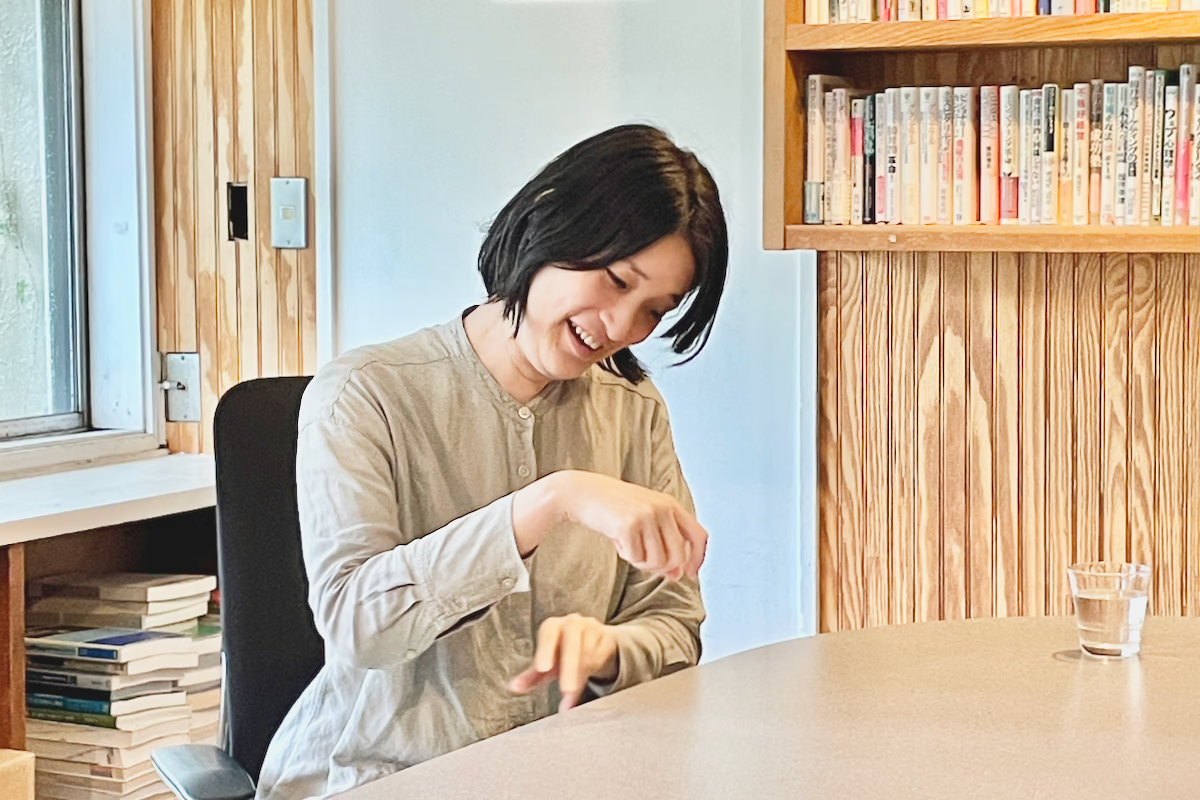
町山:「納得できること」かな。仕事のなかでは、大なり小なり誰かががまんする場面はあると思うんですけど、なるべく少なくすむように、今ある状況下でのベストな落とし所はどうにか探したいと思っています。
社内のメンバーもお客さんも「この案件をベストな状態で納めたい」と思っていて、みんな味方だと思うんです。いつも感謝して接していると、相手もすごく感謝してくれて、良好な関係で最後まで行ける感じがするんですよね。制作側とお客さんの間に立って、どちらのこともちゃんと考えて、なるべく不協和音をなくしたいと思っています。
漫画や謎解きの話をしているときの楽しそうな表情と、仕事の話をするときのキリッとした表情のギャップに萌えました。「ん?これってなんだろう?」と興味をもつことから、世界をぐんぐん広げていって、そのなかに偏愛するものごともたくさんあって。町山さんの見ている世界について、もっとたくさん聞いてみたくなりました。
今年はしばらく日本にも滞在する予定とのこと。
もう一回くらい、何か一緒にできたらいいなと企んでいます。
